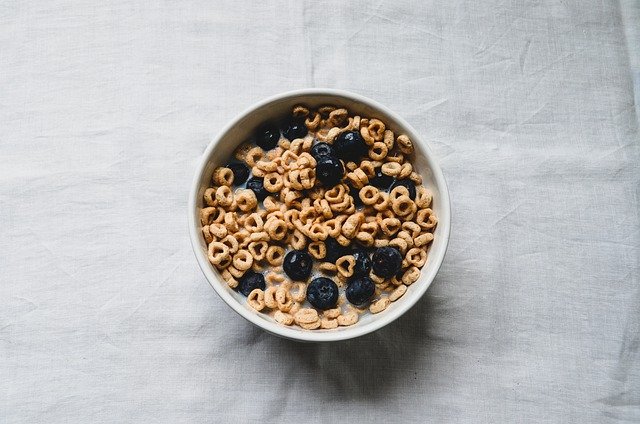Are Blueberries Blue Or Purple?

Blueberries’ color is caused by anthocyanin. The term anthocyanin is taken from the Greek words antho (flower) and kyanos (sky) (meaning blue). In terms of color, the anthocyanin family of natural pigments ranges from dark red to deep blue, indigo, and violet, depending on how acidic the pigment is. A range of pH values affects anthocyanins. At low pH, pigments turn redder. At high pH, pigments turn redder still before finally turning purple, blue, green, and yellow.
Other people say that it’s deep purple. Some say it’s deep blue or a combination of glorious deep blue-indigo hue. Whatever it is, now you know what causes its color.
Blueberries have a lot of anthocyanins, which are powerful antioxidants that help keep people healthy. Anthocyanins work by absorbing ultraviolet (UV) light and making this dark blue/purple color, which will attract bees for pollination and help the plant grow. If the berries stay out in the sun for a long time, they will have more anthocyanins in them, which will make them darker in color.
The interior of a blueberry varies in color from deep blue in wild varieties to pale green or white in cultivated varieties. The inside of most store-bought blueberries is a pale color, which is normal.
Table of Contents
Advantages to Health
Blueberries’ health benefits are due to anthocyanin, a flavonoid. Phytochemicals are called antioxidant flavonoids. The blueberry’s distinctive blue color is due to anthocyanin. It’s also why blueberries are so healthy. Eat various fruits and vegetables to lower your risk for various health issues.
Numerous studies have linked eating more plants like blueberries to a lower risk of obesity, heart disease, diabetes, and death. Plant-based foods can help with energy, skin and hair health, and weight loss. But more research is required. Blueberries have many health benefits.
Keeping Strong Bones
It contains calcium, iron, phosphorus, magnesium, zinc, and Vitamin K. These vitamins and minerals help maintain and build bone strength and structure.
Zinc and iron are essential nutrients for maintaining bone and joint toughness and elasticity.
Skin Care
Collagen is the skin’s support system. It depends on vitamin C, an essential nutrient, and can help prevent sun, smoke, and pollution-induced skin damage.
Vitamin C can also help collagen reduce wrinkles and improve skin texture.
A cup of blueberries provides 24% of your daily vitamin C needs.
Helps to Lower Blood Pressure
Low sodium intake is essential for healthy blood pressure—no sodium in blueberries.
Calcium, potassium, and magnesium make them up. A few studies have linked low-mineral diets to high blood pressure.
Mineral intake is thought to lower blood pressure.
Diabetes Control
Blood sugar, lipids, and insulin levels are higher in people with type 1 diabetes who eat high-fiber diets than those with type 2 diabetes who eat the same diet. 3.6 g fiber per cup of blueberries.
During the study, 6.5% of participants developed diabetes. The researchers found that blueberries, raisins, grapes, apples, and pears reduced the risk of developing type 2 diabetes by 7% when eaten thrice weekly. In Addition, blueberries and blackberries may benefit people with diabetes due to their low glycemic index and high fiber content. Both berries are also rich in antioxidants, which can help to reduce inflammation and oxidative stress in the body, which are common complications associated with diabetes.
Heart Disease Prevention
Blueberries are high in heart-healthy nutrients. Potassium, dietary fiber, vitamin C Blueberries’ vitamin B6, vitamin C, and phytonutrients may help heart health. The heart can benefit from blueberry cholesterol elimination. Lower cholesterol levels indicate a lower risk of heart disease.
A substance called homocysteine can be prevented by vitamin B6 and folate. Blood vessel damage from high levels of homocysteine may cause heart issues. Most of the study’s results came from those who ate three portions of strawberries or blueberries per week.
Cancer Prevention
In addition to vitamin C and vitamin A, the many phytonutrients found in blueberries provide powerful antioxidant protection against free radical damage.
Enhanced Mental Health
Blueberry consumption has been linked to a slow decline in cognitive function in older women. It has been shown to improve short-term memory and reduce the risk of cognitive impairment.
Reducing Weight and Maintaining a Healthy Digestive System
Since blueberries contain fiber, they help keep bowel movements regular and thus promote a healthy digestive system. Additionally, dietary fiber is an important component of weight loss and management because of its role as a “bulking agent” in the digestive system.
Eating foods high in fiber can help you feel fuller longer and reduce your hunger pangs. The longer you feel full, the fewer calories you consume. There are many ways to incorporate blueberries into your diet, including making smoothies and sprinkling them on your favorite foods.
Fresh, frozen, dried jellies, syrups, and jams are all ways to get your hands on blueberries. Frozen and dried blueberries should be checked for added sugars on the label before purchase.

